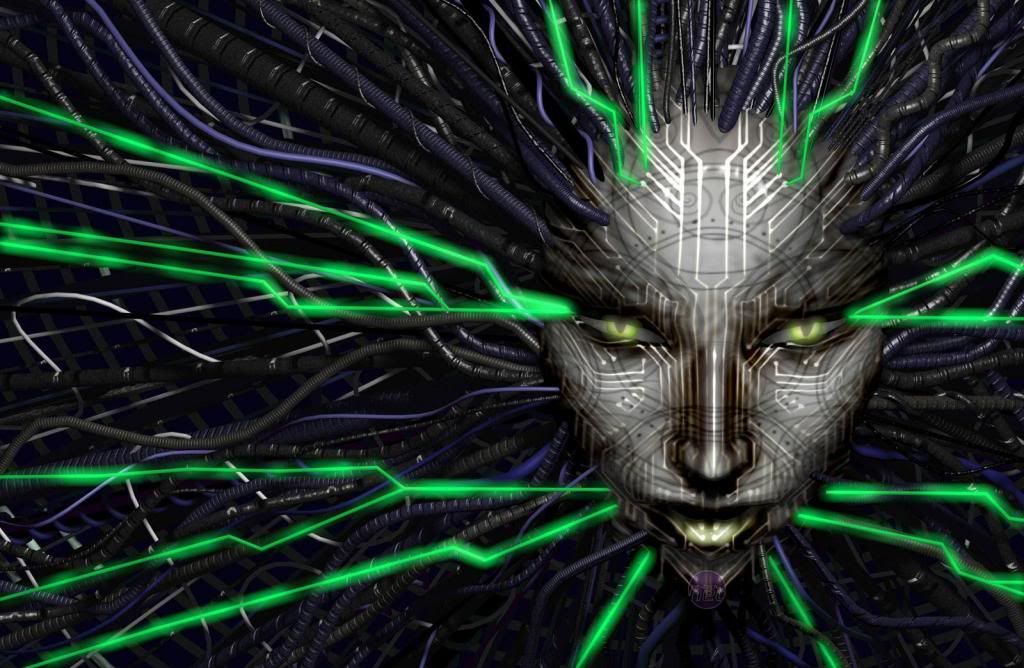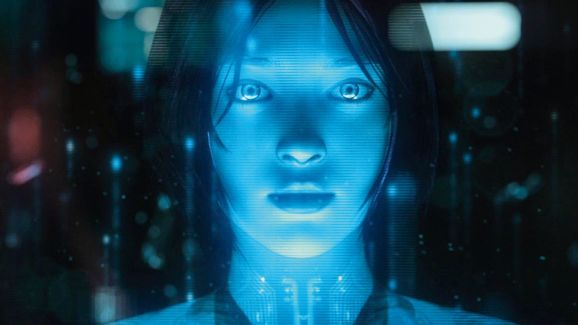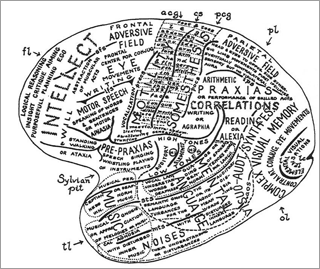An increasingly popular opinion in the current climate is that we’re now seeing the final generation of consoles. This is partly due to Sony and Microsoft declaring long-term support for their latest machines (hardly surprising while they’re still being sold at launch prices; well, the PS4 is at least), and partly due to the almost negligible increase in the quality of graphics. I’m leaving Nintendo out of this conversation because, as all three companies are happy to admit, Nintendo operate in their own bubble rather than in direct competition with other console manufacturers. I will say, however, that people who believe the above often also believe that the Wii U has already passed the point of no return, and marks Nintendo’s exit from the hardware race; but that is an entirely different argument for another time.
The idea that we will never again see a new major console, while not unreasonable, is rather naïve. Quite aside from the fact that some people were saying the same thing in the early stages of the last generation, and that it is generally accepted that the PS4 and Xbox One titles currently available are only using a portion of the machines’ full power, there’s the issue of how business works. Profit is king, as the old adage has it, and if hardware is allowed to stagnate then so, too, will profits. The latest round of consoles has, as usual, given a boost to the coffers of Sony and Microsoft’s gaming divisions. Short term, sales of the consoles themselves (which may or may not be sold at a loss) as well as new peripherals and games will send tills a-ringin’. Long term, it makes high price tags for these games and peripherals easier to sustain and justify. In fact – initially, at least – these prices are significantly higher than comparable products for the previous generation of machines. This issue is more pronounced in some regions than others (use the current exchange rate to compare the RRPs of games in the UK and USA, for example).
It’s not just the profits of the console manufacturers that need taking into consideration, either. Looking specifically at the machines themselves, there are the companies which provide the necessary components. Companies which rely on hardware sales alone to push their profits are constantly on the lookout for ways to convince consumers they need yet another upgrade of some kind – just ask anybody who keeps their PC up to date in order to play the latest games. In terms of graphics, it’s much harder to argue that consoles haven’t perhaps finally hit a plateau. It’s far too early to say either way. Presuming that graphical fidelity will no longer be the way to provide an immediately noticeable difference to the prospective buyer, how else could companies tempt people to part with their cash for a new machine?
How about an AI built into the console itself? A constant that plays with and against you across a variety of games?

The idea may sound rather far fetched; but so would an affordable motion sensing, face recognising, high-resolution camera for games (that could even differentiate between limbs) at the time of the original Xbox’s launch. Besides, I would argue that most of the elements for this idea are already in place, albeit in disparate programs and hardware. I’m sure that if a suitably driven company with the right resources saw the potential for enormous profit, these elements could – and would – be brought together. There are already relatively crude AI algorithms in place for certain games that tout “adaptive difficulty”, making things easier or harder according to how you play; but that’s not really what I’m thinking of here.
I think it’s already possible to mimic (but not produce) such an AI on a game-by-game basis with existing market technology – with a pretty big ‘if’. If Microsoft released a modified version of Cortana (their Siri equivalent) for the Xbox One, perhaps via a system update. Also if they allowed developers to draw on aspects of this for compatible games (unlikely perhaps, given Microsoft’s determination to segregate all the Xbox One features into separate apps). This theoretical combination of Kinect 2.0 features, virtual PA, and traditional videogame AI could create something truly unique.
Startling results could be achieved before you even booted up a game. It shouldn’t be hard, for example, to imagine some impressive and/or unnerving uses for a combination of face recognition and voice emulation. What if you allowed Kinect to log you in and, instead of being greeted by an on-screen message, your Xbox One greeted you by spoken name? What if your machine told you that it recommends one particular movie or game because you enjoyed another? What if you gave a voice command, and the console replied? By simply saying ‘of course’ then obeying, or perhaps asking for more specific instructions (“Would you like to resume playing the movie from where you left off?”). Reaching beyond existing features, an interesting touch would be Kinect recognising a second player entering the room while still at the dashboard, and greeting them by name (perhaps adding precisely how long it’s been since Kinect last saw them, for added unsettling power).
But what of games? How and why would this faux-AI be of use? Well, let’s imagine a Kinect boxing game, where the player fights an AI opponent from a first-person perspective (something similar exists already, I’m sure). Gameplay would be identical to a pre-Cortana game, but the taunts and cries of pain would use the same voice that greets and obeys you for general console use – and, again, it would sometimes use your name (with the help of Kinect, it will know exactly who’s playing). This is still several steps behind what a dedicated, persistent AI would be capable of.

An AI which existed as an integral part of the gaming system would be watching you. Always. As well as learning and adapting to your play title by title, I see no reason why a sufficiently well designed one couldn’t even grow to learn and anticipate the player’s behaviour in certain genres. Consider FPS games, for example. If you play them online on a regular basis, chances are that you already recognise yourself as falling into a certain play style. Are you one of those people that runs around the map almost non-stop, taking opportunistic shots at people you run into round corners? The polar opposite, an unrepentant camper? Do you spend most of your time creeping forward ADS, running from cover to cover? Are you a lone wolf, or do you always play carefully with a clan? Are you one of those people who sends a grenade flying as soon as the match begins? Do you tend to stick to the edge of the map, or go straight down the middle? Do you have a favourite spot to hide in, or – conversely – clear out, as you know people tend to hide there?
Do you have a favourite opening gambit in RTS matches? A goal-scoring tactic in football games that usually works for you? A certain route you always take through certain tracks in your favourite racing game? Combos that you rely on in certain beat ’em ups? A complex AI could learn all of this, and more – quickly. This information could be used by the AI to adapt and evolve its behaviour in-game to become a better companion; or of course, a more challenging opponent. A simple identifier on the disc could be read by the machine (and by proxy, the AI) to tell it what genre the game is – in a similar manner to region coding. In this way, a persistent AI could, in theory, anticipate your behaviour in a brand new game before you’ve even played it. Wouldn’t that be more of an incentive to buy a new games machine, rather than slightly smoother graphics?
The question I now want to ask is: if we can agree that such an AI is theoretically possible, then can we truly dismiss the possibility of it qualifying, in some way, as having achieved consciousness?
How ridiculous or plausible this idea is rests entirely on the definition of consciousness – which is itself up for debate. I will here turn to an article published in New Scientist (you’ll need a subscription to read the whole thing online) written by physicist Max Tegmark; the reason that I originally began writing this feature. The theory of consciousness that most people are familiar with is dualism. Simply put, dualism states that body and mind are two separate entities – your physical presence in the world, while connected to the ethereal ‘you’, is not who or what ‘you’ truly are. This, of course, is the fundamental principle upon which all major religions are built – you survive the death of your body, because what is truly ‘you’ has no physical presence. In “Solid. Liquid. Consciousness”, Tegmark explains and argues for an alternative to dualism that has gained traction in scientific circles – physicalism.

Physicalism states not only that very specific conditions must be met in order for consciousness to occur, but also that if the physical system which has brought this consciousness about is destroyed, disassembled or sufficiently damaged, that consciousness will cease to exist. The physical presence is the consciousness. The broad strokes of this theory make perfect sense from an atheistic viewpoint. The more complex aspects (which I shan’t pretend to have the intelligence to coherently discuss) also explain how and why people can ‘come back from the dead’, and how and why sleep states differ from the waking state.
The reason that I refer to this article here is because, clumsy as my interpretation might be, there is I think a reasonable foundation to claim that – theoretically – the hypothetical persistent AI that I have proposed could (from a very specific perspective) be said to be capable of developing consciousness. Not necessarily intelligence as it is popularly understood, but an approximation close enough to match that of many animals.
The AI that I’m thinking of would be connected yet separate in the console; it could read information from the machine yet be removed and function in the same way in another, in a similar way to a replaceable internal hard drive or graphics card. Those are crude examples of course because, if such a persistent AI were possible, it would learn. It would develop. Each day of use would mould and improve it from its state the day before and, were it to be removed from one console and put into another in such a way, it would likely initially struggle should the second machine be used by a different person with completely different play styles. The whole point is, however, it could and would adapt. The very fact that the physical element of the AI could be removed and refitted in such a way sits at the heart of my argument for consciousness.
To get to this point of course requires an awful lot of ‘if’s. If at least one console manufacturer considered this idea, if they then thought it was viable, if it then got to the R&D stage, if it actually got made and released, if it worked properly, if it was created in the ‘separate but connected’ way that I have described, and so on. But if we ever saw anything like this, and if some people started to consider that, yes, this AI could be said to have developed consciousness…should we care? Would it be enough to be content to see such a creation used for mere entertainment? Would it be moral? Would that even be a valid question?








Comments